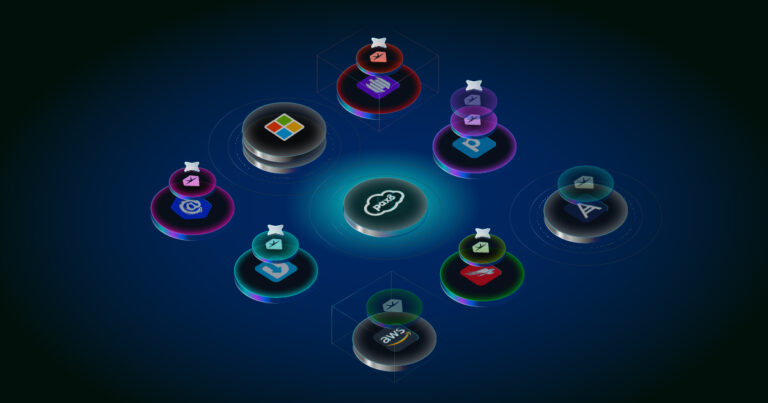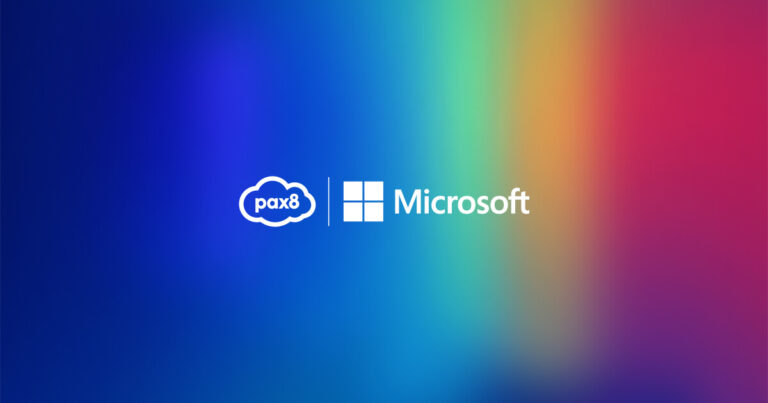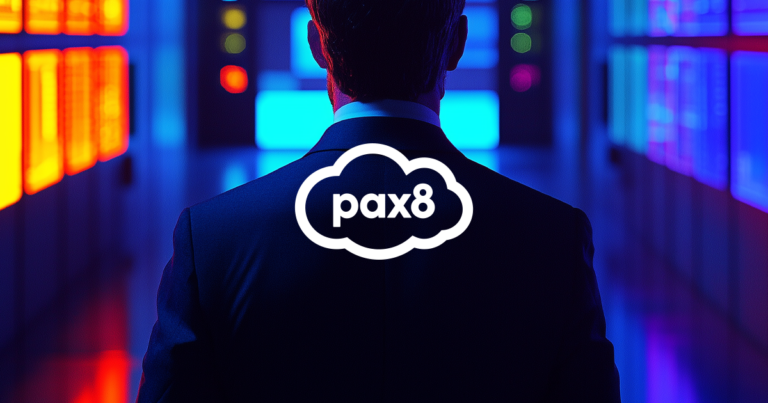Like enterprise organizations, small and medium-sized businesses (SMBs) face increasing cyberthreats and unexpected disruptions. As a managed service provider (MSP), offering both security and continuity solutions is crucial to ensuring not only that your clients’ data is protected, but that their operations can continue uninterrupted.
Understanding continuity
Every MSP knows security is vital for their clients. But what they may not realize is that continuity is just as critical to protecting SMBs’ data. In fact, a break in continuity can cost $10,000/hour.
Continuity solutions provide backup protection to systems and hardware, allowing organizations to achieve business continuity in the face of a disruption, such as a cyberattack or natural disaster. While these solutions cannot eliminate the risk of outages, they significantly minimize downtime, which can save MSPs and their end clients valuable time, money, and customers.
“MSPs should think of cybersecurity as the protection and continuity as their insurance,” says Richard Tubb, IT Business Growth Expert. “No MSP can ever mitigate every risk in the exceptionally fast-paced world of cybersecurity, so continuity is a must.”
What are examples of continuity solutions?
Some examples of continuity solutions include:
Backup: These solutions create copies of data in a secure, offsite location ensuring that critical information is protected and can be quickly restored if the primary system becomes compromised. Backup solutions act as a safety net, allowing businesses to recover their data and resume operations seamlessly.
Disaster recovery: While backup solutions create the copies needed in case of a disruption, disaster recovery solutions put a plan to recover data in place. Disaster recovery solutions provide a failover mechanism, ensuring that businesses can quickly switch to a backup system and continue functioning.
Cloud-based solutions: Accessing data and applications remotely through the cloud supports seamless operations for businesses, regardless of their physical location. Cloud-based solutions enable remote work and allow businesses to maintain productivity and collaboration during disruptions.
Archiving: Archiving solutions allow organizations to store and manage large amounts of inactive data securely, meeting compliance requirements and facilitating retrieval when needed. Archiving not only ensures data availability but also helps businesses comply with regulatory standards. This is differentiated from backups, which cover current data; in contrast, archiving helps organizations free storage space and improve system performance.
The symbiotic relationship between continuity and security
Cybersecurity and continuity solutions aren’t the same, but they do go hand-in-hand. While cybersecurity solutions focus on protecting critical systems and data from cyberthreats and attacks, continuity solutions act as a safety net, indemnifying businesses against potential disruptions. Together, they protect businesses’ valuable assets and ensure that they can recover quickly in the event of an incident.
In essence, cybersecurity acts as an organization’s first layer of protection, while continuity acts as the underlying insurance that everything can get back up and running if cybersecurity protocols fail. While cybersecurity should be a priority for all businesses, no solution or practice is perfect; without continuity in place, it’s like buying a security camera but forgetting to take out insurance for your home. You might detect the threat and have the tools to stop it in its tracks, but how quickly (if at all) will you be able to recover from the damage caused? That’s where continuity comes into play.
The importance of continuity solutions
The ability to recover and resume operations quickly is just as essential as protecting against threats. Continuity solutions are the key to minimizing downtime and ensuring business continuity, thereby safeguarding your clients’ reputation, revenue, and end customers’ trust.
Imagine a scenario in which a business experiences a cyberattack that compromises its systems. Without a continuity solution in place, the business would face risks such as prolonged downtime, monetary loss, and potential customer attrition. Tubbs brings up an apt analogy: “Some interesting areas for continuity include critical workstations. How would your client react if that aging PC containing the floppy-disk based payroll software were unavailable?”
On the other hand, with a robust continuity solution, the business can quickly recover its data and systems, minimizing the impact of the attack and reducing the recovery time. Thus, continuity is no longer a “nice to have,” but rather a must-have for every business that uses data.
Featured continuity solutions
With all the various categories within business continuity, it can seem overwhelming to get started. The following are a few suggestions to help you get started:
Microsoft
Microsoft offers a range of continuity solutions that MSPs can leverage to keep their clients’ businesses up and running. These solutions are built into the Microsoft ecosystem and seamlessly integrate with other Microsoft products and services:
- Backup and file sharing: Azure Plan and OneDrive provide secure storage and backup for critical data. Businesses can schedule regular backups and easily restore data when needed. In addition, OneDrive allows users to securely share files and edit them at the same time, enabling remote collaboration.
- Disaster recovery: Azure Site Recovery is a native disaster recovery-as-a-service (DRaaS) that lets you deploy replication, failover, and recovery processes to keep your clients’ applications running during outages.
- Email archiving: Microsoft Exchange Online Archiving ensures that email data is securely stored and easily accessible. It helps businesses comply with legal and regulatory requirements and facilitates quick retrieval of archived emails.
Dropsuite
The Dropsuite platform enables organizations to easily back up, recover, and protect their important business data. They offer the following continuity solutions:
- Email archiving: Organizations can store, protect, manage, and discover data from email systems such as Microsoft Exchange Online, Hosted Exchange, and Workspace Gmail. Dropsuite’s email archiving ensures compliance through envelope journaling and offers robust features for data governance, including eDiscovery, Retention and Legal Hold policies, and Compliance Review.
- Business backup: A cloud-based website, database backup, and monitoring service organizations can use to securely back up, recover, monitor, and protect site and database information, ensuring business continuity in the face of unforeseen incidents.
Dropsuite
Dropsuite is a cloud-based software platform that gives businesses and organizations an easy way to protect, backup, and recover information.
Acronis
Acronis covers both security and continuity aspects with their solutions. Their Cyber Protect Cloud provides continuity functions including backup, disaster recovery, file sharing and SaaS (software-as-a-service) backup, as well as email security, endpoint detection and response, endpoint security, security assessments, and web security — all in one package. Acronis stands out by offering a total solution across Security and Continuity, making it an attractive option for MSPs looking for comprehensive protection for their clients.
Axcient
Axcient’s x360 solution offers MSPs a combination of SaaS backup, backup and disaster recovery, and secure file synchronization and sharing. It’s another all-in-one solution that can make life easier for MSPs looking to provide their clients with reliable continuity.
Redstor
A global backup and archiving security and continuity solutions vendor, Redstor offers MSPs a quick-scaling platform that protects cloud infrastructure, SaaS business applications, and on-prem data via a single app.
Offering complete protection
As an MSP, it’s essential to offer both cybersecurity and continuity solutions — and to be able to understand and explain their differences and relationship. Tubbs continued, “Make sure not to make the mistake of abdicating responsibility for continuity. Never make assumptions about the levels of continuity cloud providers offer. MSPs who believe that the responsibility of the cloud providers to back up their data will soon come unstuck.”
While security protects against threats, continuity ensures that businesses can recover quickly from disruptions. By offering both security and continuity solutions, MSPs can provide comprehensive protection and peace of mind to their clients.
At Pax8, we understand the importance of continuity for SMBs and ensuring our MSP partners are well equipped to have conversations about it. And that’s why we offer a robust set of resources to help you, and your customers, understand the importance of backup and continuity. From our straightforward guide that teaches you how to sell backup to the Pax8 Downtime Cost Calculator that lets you share the cost of downtime with your clients as well as sales enablement tools, Pax8 has the knowledge and expertise your SMBs need.
Speak with one of our world-class continuity experts about incentives and how to get started so you can start building more trust and offering better protection to your clients.





